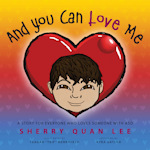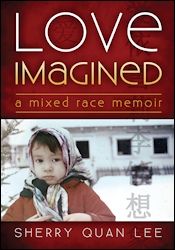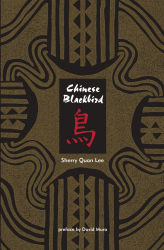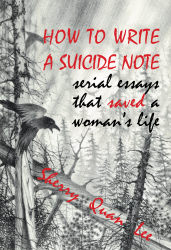I’m looking for poems to critique for June! For detailed information, click on Get a Critique of Your Poem
Valerie’s response to critique of her poem is in purple
****************************************************
Valerie, I like how your poem questions whether the narrator is a “crazy girl” while at the same time we recognize “crazy” to be good, to be positive and not “crazy” at all, but a word suggesting imaginative, creative, “angelic,” and “divine.” The “crazy girl” is to be honored by her mother; crazy is an honorable quality.
Thanks, Sherry, for your critique of my poem. Always interesting to hear how someone else “hears” my words. I hadn’t thought about your insight about the word crazy. That works for me on one level. One another I want the “I” of the poem to feel that perhaps it is a bit crazy to think that she is God.
Other words/images I like are “ambrosia,” “kaleidoscope,” and “angels.”
I also like how you refer to the song, Swing Low Sweet Chariot and suggest you use actual words from the song, in italics, such as the verse:
Sometimes I’m up, and sometimes I’m down,
(Coming for to carry me home)
But still my soul feels heavenly bound.
(Coming for to carry me home)
[see info http://en.wikipedia.org/wiki/Swing_Low,_Sweet_Chariot]
Perhaps use lines from the song intermittently throughout the poem. In the song we get the contradiction of swinging low, yet “heavenly bound”/similar to how you use “spiral towards the sky.”
One problem I’d have with using the actual words of the song is that (at least for now), I am wedded to the form, and the song itself does not add anything new to what I am trying to do or say here. I make allusions to the song only in the sense of adding a kind of spiritual air to the poem, a visual kind of connection to flying because these “chariots” are in the sky. In this poem, I am consciously writing seven syllables each line, seven lines each stanza, and then seven stanzas. It’s a form created by Kate Rushin, called Seven Sevens I believe. So the lines of the song would not fit into this scheme. While I do understand that it is not always good to be so wedded to a form, that sometimes a poem can get lost or buried, for me, the rhythm is as important here as what is being said. And for me, the rhythm actually leads to the understanding that the “I” of the poem discovers in the last stanza.
I would like you to experiment with the title. Write down at least a dozen possible titles and see where that leads you. What title most draws the reader into the poem? Although your focus seems to be the “crazy girl” –is it really? Often what we think is the subject is only what gets us to the real subject. Could the title be Kaleidoscope or Reflection or The Angel in the Mirror or Ambrosia or…..? I also like titles that flow into the poem. For instance:
Perhaps I am that crazy
girl who dreams she can fly
Actually that is how the poem started. Ha! I’d started writing the poem like you’ve suggested, and perhaps in the beginning I was thinking along the lines of the “I” in that poem being the “crazy girl,” but the poem went somewhere else. And then again, I wanted to work within this particular form. My intended meaning changes if I were to start from the title you’ve suggested. “Crazy girl” is the “she” of the poem, not the “I’. The “I” is only contemplating what it would be like to BE like “crazy girl.” Thus the title I’ve chosen reflects the contemplation or rumination that the “I” of the poem is doing throughout. For me, the poem is more about the understanding of the “I” expanding or evolving more than anything else, so that is why the ending repeats. The last stanza has the “I” imagining herself a divine entity, kind of riffing off the “I am that I am!” reference from the Bible.
Other suggestions: 1) delete the last verse. Although it brings us full circle, can it be said with more confidence and with imagery?
For me, the entire poem leads up to the last verse, which is purposefully repetitive and circular. I am trying to mimic the way one might churn things over in their mind to come to a different conclusion or deeper understanding about a concept.
2) can you delete “smells” after the word “ambrosia”?
Perhaps I will think about another word that would do what I want. I want the allusion to the ancient mythical Roman gods to make a connection to something treasured as divine, want to include paganism in a spiritual conversation.
3) Can you choose between “God/Creator/Power/Source”-use one word that says what you want to say or open it up?
I thought about it, a lot, but for me the concept I want is too large for one word. The word God alone is almost meaningless because of its (over)use in our society. God has infinite interpretations to so many, so I was trying to bring in the concept that however anyone might understand that larger God spirit/power which is the source and creator of all that is the G/P/C/S. And besides I needed 7 syllables. Ha! I do understand what you are saying, but for me the concept needs to be a bit overwhelming or perhaps what I’m looking for is a bit piecemeal to show a kind of encompassing or embracing of everything. And because the line follows the allusion to mythical gods, I wanted that connection too. My thought was to bring in the idea that whatever name God (in any language/culture) is called, that God is still the same G/P/C/S.
*4) who are the “Mothers” and “Fathers”? Why plural?
This may be a stretch, I agree, but in the context of what the “I” is contemplating in the poem, mothers and fathers are the ancestors of the crazy girl. And The “I’ understands that the “crazy girl” is not like her, does not exist in the framework of typical human relationships. She knows that the “crazy girl” might not have just one mother or father, that she could exist in another realm where she could have a whole community or legacy of support. Her “mothers” might include grands, aunts, sisters, and even foremothers, same as here fathers. Or the I in acknowledging that perhaps in “crazy girl’s” world, everyone has multiple parents.
5) There is the “I” in the beginning of the poem, then later “She” and “they”–are they the same person? Be clear with pronouns.
Perhaps this is confusing. I will work on making it clearer, but the “I” of the poem is not the “she” or the “they.” Each pronoun refers to a different “character” in the poem. The “I” is the contemplating spirit of the poem, the one who is wondering what it would be like to be “that crazy girl,” who is the “she” of the poem. The crazy girl (the she) is the one who has many mothers and fathers, and powers that the “I” would like to have. “They” are the children, or those who will come after the “I,” sort of the next generation, who the “I” (at the point in the poem where they show up where the “I” is beginning to recognize or have a better understanding of “the crazy girl” as an angel or some other spiritual being and comes from a community) wants both to be like and to leave something of value to. The children (they) bring in a kind of future spiritual union or bonding, of which the “I” is beginning to think she may be a part of. The “I” both wants to be like the “crazy girl and those innocents (the children) who will grow up following divine energy, who can actually see the angels and God. And then she (the “I” of the poem) recognizes that indeed she can see God herself “in her (own) mirrors,” which means that she, the “I’” connected to the “crazy girl,” and the children. Whew! Hope this is clear, makes sense. The poem is of one contemplating being a more evolved creature, maybe even God herself.
*check out how Lucille Clifton wrote in the message from The Ones: place here / the name / you give / to god / is love / is light/ is / here the name / you give / to / yes
This was one of the places (I’m sure) that I got the concept of no single word big enough for the concept or understanding of what God is, as God is understood by the “I” in the middle of her contemplating. By the end, she has even expanded that already multi-layered expansive notion to include the divinity within herself.
If I were to condense this poem, to show some of what I have suggested, it would, on a first unedited draft, look something like this:
Kaleidoscope of Angels Dancing in Mirrors
Perhaps I am that crazy
girl who dreams
she can fly
swing low sweet chariot
kaleidoscope of angels
dance wildly in my mirrors
Sometimes I’m up, and sometimes I’m down,
I want to swallow the sun, taste
ambrosia, hungry for peace
shimmer and spread love
like a rainbow
But still my soul feels heavenly bound
I spiral towards the sky, God’s child
honoring the mothers and the fathers
the wise angels beckoning me
to their garden
(Coming for to carry me home)
In a way, your edit certainly contains the essence of what I was trying to do with the poem, but I was looking to go a bit farther. The “I” is not waiting/longing for any other being or entity to “carry” her home but is beginning to think that she could have/already has the powers/peace of “crazy girl” within, and her thinking ends with an understanding that allows her to claim (or at least begin to claim) that spirit/soul and recognize it not just within herself, but as herself. There is an intended kind of double meaning too, that I was working with and that is that is it might seem crazy to think that anyone could claim that God/Creator/Power/Source. The “I” is asking if she could the “I am that I am” voice that opens within her.
But this is your poem, Valerie, and yours is a lovely poem. It has depth and beauty. I only hope my suggestions will give you some ideas to make it even more beautiful. Have fun with it, experiment with words and format. And, feel free to comment on my comments!
Sherry Quan Lee
April 30, 2011
This was fun! Maybe we can do this again sometimes. Ha! I certainly have enjoyed reading what you thought, which absolutely helped me to better understand what I was reaching for in the poem. I’ll definitely get back to this piece in about 3 or 4 months. I need about that much space before I can see the poem again with “editor’s eyes.” Great help. Thank you!
Valerie Jean
May 18, 2011











Hi Sherry,
I really wish I was able to learn something from you and Lori today at the Openbook session today between 10-4, but I arrived late and couldn’t atend class. I love writing, but my structure is messy. Hopefully, I could be able to see you guys soon.
Way cool, Sherry. Thank you both for sharing this.
How wonderful to read the critique of Valerie’s poem. What is “wonderful” is reading not only your comments Sherry, but Valerie’s response. This is what I need as a writer. To bounce my words off another soul, to hear them reverberate, listen to the echos, interpretations and then pull back and respond with stronger word choices, different formats, whatever to get to what I hope the reader will pull from the page. It’s the dialogue that carries us during the solitary writing sessions. Thanks for sharing this Sherry and Valerie.